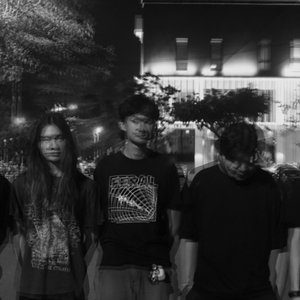Stay by the world ends with you.

Abandonment issues are a complex psychological phenomenon that can have profound effects on individuals. Research has shown that abandonment, along with other traumatic experiences, can lead to various mental health challenges. Studies have highlighted the negative impact of abandonment on individuals, especially when coupled with other forms of trauma such as child maltreatment and sexual abuse (Kira et al., 2013). The fear of abandonment has been linked to conditions like borderline personality disorder (BPD) and complex posttraumatic stress disorder (CPTSD) (Ford & Courtois, 2014; Dijke et al., 2018). Individuals who have experienced abandonment may exhibit symptoms such as fear, loneliness, and intense concerns about interpersonal relationships (Campos et al., 2014; Fung & Chan, 2019).
The effects of abandonment can be particularly severe in vulnerable populations such as orphaned and separated children, where parental death or family disruption can lead to feelings of being abandoned (Vermund, 2021). Abandonment can also manifest in intimate partner violence situations, where victims may experience dissociation as a coping mechanism to preserve vital attachments perceived as necessary for survival (Zerubavel et al., 2017). Furthermore, the impact of abandonment trauma can be long-lasting, affecting the neurological development of individuals and their subsequent ability to regulate emotions (Martínez, 2023).
Studies have also explored the relationship between trauma, including experiences of abandonment, and religious coping mechanisms. Positive religious coping strategies, such as seeking spiritual support, have been associated with posttraumatic growth, while negative religious coping mechanisms, like religious strain, may exacerbate posttraumatic symptoms (Harris et al., 2007; Satchell et al., 2023). Trauma, including feelings of abandonment, can significantly influence an individual's spirituality, leading to experiences of doubt, guilt, and shame, but also potentially fostering a renewed and strengthened faith through the struggle to find meaning in traumatic events (Rudolfsson & Tidefors, 2014). Understanding the complexities of abandonment trauma is crucial for developing effective interventions and support systems for individuals grappling with these challenges.
References:
Campos, R., Besser, A., & Morgado, C. (2014). Self‐criticism, dependency, and adolescents' externalising and internalising problems. Clinical Psychologist, 18(1), 21-32. https://doi.org/10.1111/cp.12024
Dijke, A., Hopman, J., & Ford, J. (2018). Affect dysregulation, psychoform dissociation, and adult relational fears mediate the relationship between childhood trauma and complex posttraumatic stress disorder independent of the symptoms of borderline personality disorder. European Journal of Psychotraumatology, 9(1). https://doi.org/10.1080/20008198.2017.1400878
Ford, J. and Courtois, C. (2014). Complex ptsd, affect dysregulation, and borderline personality disorder. Borderline Personality Disorder and Emotion Dysregulation, 1(1), 9. https://doi.org/10.1186/2051-6673-1-9
Fung, H. and Chan, C. (2019). A preliminary study of the clinical differences between dissociative and nondissociative depression in hong kong: implications for mental health practice. Social Work in Health Care, 58(6), 564-578. https://doi.org/10.1080/00981389.2019.1597006
Harris, J., Erbes, C., Engdahl, B., Olson, R., Winskowski, A., & McMahill, J. (2007). Christian religious functioning and trauma outcomes. Journal of Clinical Psychology, 64(1), 17-29. https://doi.org/10.1002/jclp.20427
Kira, I., Fawzi, M., & Fawzi, M. (2013). The dynamics of cumulative trauma and trauma types in adults patients with psychiatric disorders: two cross-cultural studies.. Traumatology an International Journal, 19(3), 179-195. https://doi.org/10.1177/1534765612459892
Martínez, B. (2023). Abandonment trauma from a developmental perspective and its treatment.. https://doi.org/10.56238/methofocusinterv1-041
Rudolfsson, L. and Tidefors, I. (2014). I have cried to him a thousand times, but it makes no difference: sexual abuse, faith, and images of god. Mental Health Religion & Culture, 17(9), 910-922. https://doi.org/10.1080/13674676.2014.950953
Satchell, J., Dalrymple, N., Leavey, G., & Serfaty, M. (2023). “if we don't forgive, it's like holding on to them”: a qualitative study of religious and spiritual coping on psychological recovery in older crime victims.. Psychological Trauma Theory Research Practice and Policy. https://doi.org/10.1037/tra0001420
Vermund, S. (2021). Where should orphaned and separated children and adolescents live: comparing institutionalized- and family-based venues in kenya. Jama Network Open, 4(9), e2125572. https://doi.org/10.1001/jamanetworkopen.2021.25572
Zerubavel, N., Messman-Moore, T., DiLillo, D., & Gratz, K. (2017). Childhood sexual abuse and fear of abandonment moderate the relation of intimate partner violence to severity of dissociation. Journal of Trauma & Dissociation, 19(1), 9-24. https://doi.org/10.1080/15299732.2017.1289491
Credits
Recorded live at iSeekMusic
Engineered, mixed & mastered by Mokhtarizal at iSeekMusic
Written & performed by the world ends with you.
Vocals - Iman Khalis
Guitars - Arief Imran, Iman Khalis, Muhammad Hazeeq
Bass - Danial Ardi
Drums - Haziq Aiman
Cover art by @static.slug on Instagram







